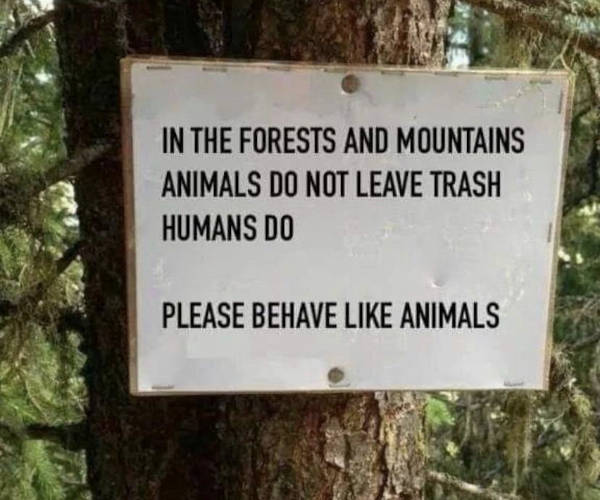[From Pixabay]
Good morning,
As the world bid goodbye to Buddhist monk and peace activist Thich Nhat Hanh, we thought it only appropriate to revisit the pages of his profound book, Silence: The Power of Quiet in a World Full of Noise. Every word still resonates.
“There are four kinds of food that every person consumes every day. In Buddhism, we call these kinds of food the Four Nutriments. They are edible food; sense impressions; volition; and consciousness, both individual and collective.
“The edible food is, of course, the food that you eat with your mouth every day. The second food, sense impressions, is the sensory experiences you receive through your eyes, ears, nose, tongue, body, and mind. This includes what you hear, what you read, what you smell, and what you touch. It includes your phone and text messages, the sound of the bus outside your window, and the billboard you read as you pass by it. Although these things are not edible food, they are information and ideas that come into your consciousness and you consume them every day.
“The third source of nutriment is volition. Volition is your will, your concern, your desire. This is food because it ‘feeds’ your decisions, your actions, and your movements. Without any volition, without any desire to do anything, you wouldn’t move; you would simply wither.
“The fourth kind of food is consciousness. This food includes your individual consciousness and the way your mind feeds itself and feeds your thoughts and actions. It also includes collective consciousness and how it affects you.
“All of these foods can be healthy or unhealthy, nourishing or toxic, depending on what we consume, how much we consume, and how aware we are of our consumption. For example, we sometimes eat junk food that makes us sick, or drink too much when we’re upset about something, in the hopes of distracting ourselves even if afterward that consumption makes us feel worse.
“We do the same thing with the other nutriments. With sensory food, we may have the awareness to take in media that are wholesome and enlightening, or on the other hand we may use video games, movies, magazines, or even engaging in gossip in order to distract ourselves from our suffering. Volition can also be healthy (constructive motivation) or unhealthy (craving and obsession). Likewise, collective consciousness can be healthy or unhealthy. Think of how affected you are by the mood or the consciousness of the group you are in, whether that group is supportive, happy, angry, gossipy, competitive, or listless.
“Because each nutriment affects us so deeply, it’s important to be aware of what and how much we are consuming. Our awareness is the key to our protection.”
Have a peaceful day!
An inclusive civil society
In an interview to India Development Review, Aruna Roy, founder of the Mazdoor Kisan Shakti Sangathan (MKSS), and one of the key people behind the Right To Information and Employment Guarantee movements, highlights why it’s important for any social movement to take a wide range of people along.
She says, “The RTI movement involved everyone—the media, academia, lawyers, and others. MGNREGA would not have happened without economists such as Jean Dreze, Jayati Ghosh, Prabhat Patnaik, and others who used fiscal arguments to counter the government’s constant refrain of ‘no money’. The RTI law was drafted by Justice PB Sawant, an ex-Supreme Court judge and chair of the Press Council of India.
“If you want anything to succeed, you have to involve a range of people. And you have to convince them about your idea—this must happen through public communication. Civil society is a target today because it amplifies the voices of justice and equality. We also have to understand that civil society is a large umbrella; it’s not just activists. It includes practically the entire population of India, because except for the state and the market, everyone else is civil society. We have to fight to sustain what we have.”
Dig deeper
Email, video or IM?
Some people like to email colleagues furiously; yet others prefer the convenience that Instant Messaging apps such as Slack and WhatsApp offer. And then there are the ubiquitous video calling tools such as Zoom, Google Talk and all else. But what most people haven’t figured out is that as the WFH and hybrid work cultures are taking deeper roots, a communication culture has permeated the lives of most people. And there are unspoken rules about when to use which tool. This is a theme Suzanne Oliver of The Wall Street Journal explored with experts.
She reports, “If you are trying to collaborate or come to a consensus in a group, email is a poor choice,” because “It is difficult to keep track of the thread of information and the latest versions of documents, and if someone doesn’t ‘reply all,’ the whole communication chain breaks down.”
As for messaging apps, “Microsoft Teams and Slack is good for asking quick questions, getting task updates and accessing shared knowledge and files by sending people links. It is also less formal than email, so you don’t have to spend time writing extended greetings or goodbyes in your notes.”
When does video conferencing work well? “When delivering really good news or really bad news, the inflection and facial expressions conveyed in video can enhance the communication…But there are definite limitations to the medium. When you add a chat and a video gallery of participants, there is a lot of stimuli, and an extended video meeting can be fatiguing.”
Dig deeper
Behave like animals

(Via WhatsApp)
Found anything interesting and noteworthy? Send it to us and we will share it through this newsletter.
And if you missed previous editions of this newsletter, they’re all archived here.
Warm regards,
Team Founding Fuel
(Note: Founding Fuel may earn commissions for purchases made through the Amazon affiliate links in this article.)

